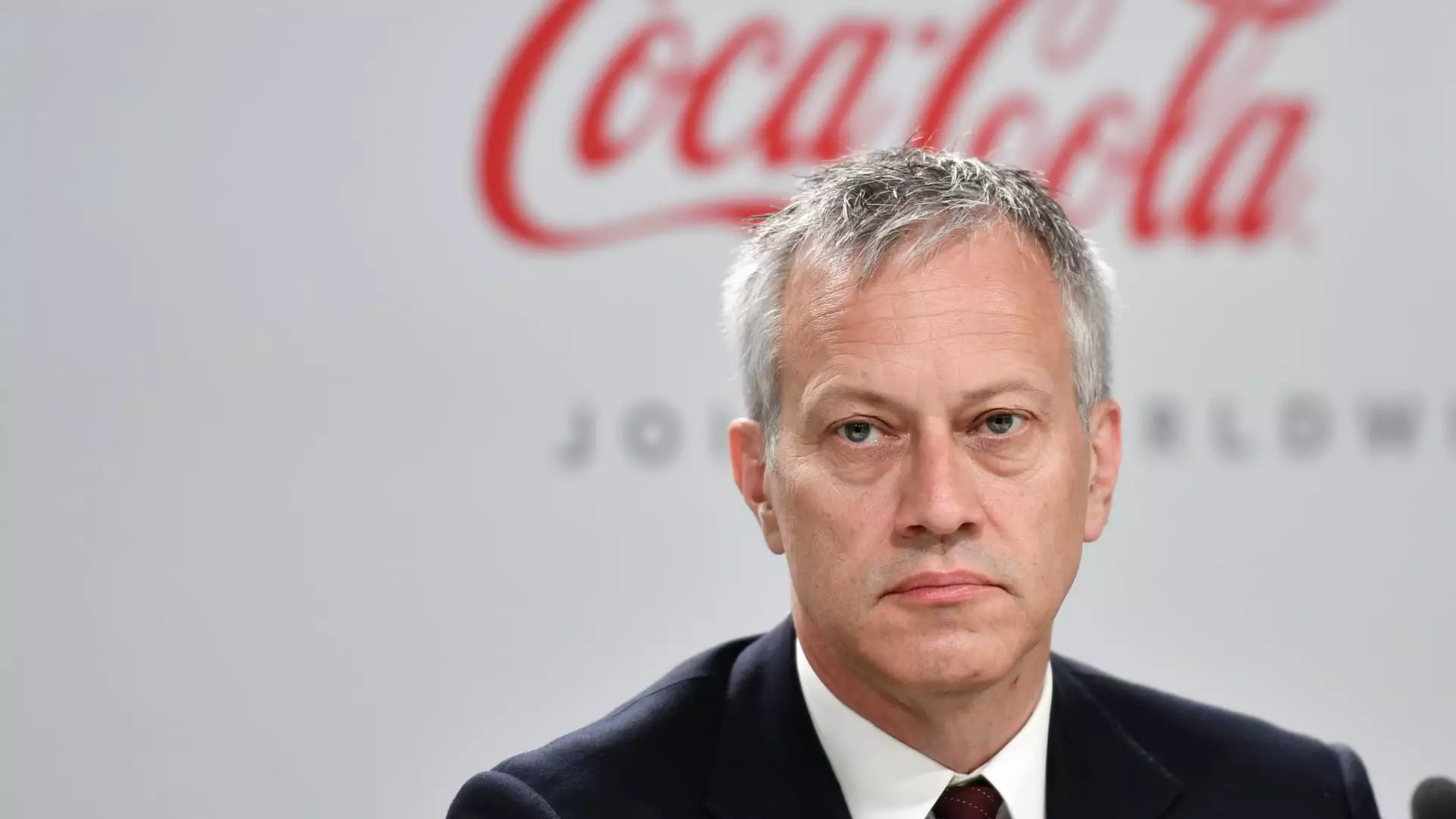Coca-Cola and McDonald’s have been interwoven into the fabric of the fast-food and beverage sectors for nearly seventy years, creating a partnership that thrives on mutual benefit. However, recent events have placed this relationship under scrutiny as an E. coli outbreak linked to McDonald’s Quarter Pounder burgers has emerged. Despite the potential fallout from such health-related crises, Coca-Cola’s CEO, James Quincey, remains optimistic about the implications for the beverage giant. He made it clear during the third-quarter earnings call that he does not foresee significant repercussions for Coca-Cola’s sales, asserting that the nature of the outbreak—affecting only a limited number of states—is unlikely to have widespread impact.
On a concerning note, the Centers for Disease Control and Prevention (CDC) reported a total of 49 cases of E. coli across ten states, which has raised alarm among diners and restaurant operators alike. The agency has identified the potential culprits: the onions and fresh beef patties that are exclusive to McDonald’s Quarter Pounder. In its response, McDonald’s swiftly removed the affected items from the menu in several Western states and ensured that local restaurants discarded slivered onions while halting their distribution in specific regions. Though the fast-food leader acted quickly to mitigate risk, it remains uncertain how this incident will impact consumer confidence and overall sales—both for McDonald’s and its beverage counterpart, Coca-Cola.
Quincey emphasized the long-standing partnership with McDonald’s during the crisis. “We’re a big partner of McDonald’s, and they’re a big partner of ours,” he declared, showcasing the degree of cooperation intended to minimize the strain from the outbreak. Despite the situation, Quincey reassured consumers that they could still enjoy Coca-Cola products at McDonald’s establishments. The company’s commitment to stand by McDonald’s as they navigate the complexities of food safety speaks volumes about their relationship—evidencing both companies’ vested interest in weathering the storm together.
Conversely, the outbreak coincides with a broader trend of declining consumer spending within the restaurant sector, which has already posed challenges for industry giants like McDonald’s and Coca-Cola. With disposable income tightening and inflation affecting purchasing habits, both companies have sought to incentivize dining through promotional deals and discounts. In this context, Coca-Cola’s financial performance amidst this downturn is noteworthy. Despite facing potential impacts from the outbreak and sluggish consumer spending, the company’s latest earnings report exceeded Wall Street projections, largely due to increased prices across its product range.
Looking Ahead: Implications for the Future
As the dust settles from the outbreak, the key question remains: how will McDonald’s and Coca-Cola adapt in this changing landscape? For McDonald’s, the immediate challenge is restoring consumer trust while dealing with the ramifications of the E. coli scare. The swift removal of the affected item showcases the brand’s commitment to food safety, which is vital in retaining loyal customers. On Coca-Cola’s end, sustaining its sales momentum while supporting its largest partner could lead to innovative marketing strategies that bolster the appeal of combo meals and attract budget-conscious consumers.
The relationship between Coca-Cola and McDonald’s transcends mere financial transactions—it’s a collaboration built on mutual success, which now finds itself tested amid unforeseen challenges. Continuous examination of consumer attitudes toward the fast-food environment amidst health concerns will be crucial as both brands look to regain stability and secure their foothold in a competitive market. Ultimately, adapting swiftly to evolving consumer preferences and concerns will be critical as they strive to emerge resilient from this crisis.



Leave a Reply